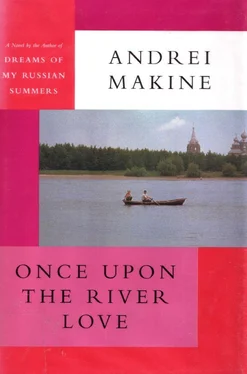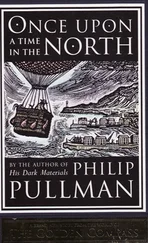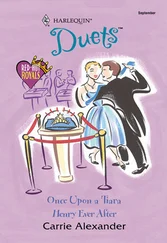They believed they were whispering, but because of their shawls they were obliged to shout. And our young ears would pick up the secret being divulged. On this occasion the headmistress of the school had apparently been seen in the cabin of a refrigerator truck… Yes, you know, those broad cabins with a little berth behind them. And the truck had been parked just by the Devil's Bend, yes, the very place where a truck overturns at least once a year. It was impossible to imagine the headmistress, a curt woman of an improbable age, who wore a whole carapace of flannelette-lined garments, romping in the arms of a truckdriver who smelled of cedar resin, tobacco, and gasoline. Especially at the Devil's Bend. But this fantasy of copulation in a cabin with frosted-up windows released little fizzing bubbles into the icy air of the village. The parade of indignation warmed their chilled hearts. And people almost resented the headmistress for not being seen scrambling up into every truck carrying the trunks of huge pine trees through the taiga… The stir aroused by this latest piece of tittle-tattle quickly faded away, as if congealed under the icy wind of endless nights. In our eyes the headmistress became once more as everyone knew her: a woman irremediably alone and resigned to her misery. And the trucks roared by as usual, obsessed with transporting the number of cubic meters of load specified in the plan. The taiga closed in on the brilliance of their headlights. The white breath of the women's voices dissolved in the biting wind. And the village, sobered up from its erotic fantasies, huddled up and settled into the eternity known as "winter."
From the time of its birth, the village was not conceived as a haven for love. The czar's cossacks, who had founded it three centuries earlier, never even thought about it. They were a handful of men overwhelmed with fatigue from their crazy trek into the depths of the endless taiga. The haughty stares of the wolves followed them even into their turbulent dreams. The cold was quite different from that in Russia. It seemed to know no limits. Covered with thick hoarfrost, their beards stood out like ax blades. And if you closed your eyes for a moment, your lashes would not come unstuck. The cossacks cursed in vexation and despair. And their spit tinkled as it fell in little lumps of ice on the dark surface of a motionless river.
Of course, they too experienced love on occasion. There were these women with slanting eyes and impassive faces that seemed as if haunted by mysterious smiles. The cossacks made love to them on bearskins in the smoky darkness of yurts, beside the glowing embers. But the bodies of these taciturn lovers were passing strange. Anointed with reindeer fat, their bodies slipped from your grasp. To hold on to them, you had to twist their long glistening tresses, as black and coarse as a horse's mane, around your fist. Their breasts were flat and round, like the domes of the oldest churches in Kiev, and their hips were firm and resistant. But once tamed by the hand holding back their manes, their bodies no longer slipped away. Their eyes blazed like the cutting edges of sabers, their lips grew rounded, ready to bite. And the scent of their skin, tanned by the fire and the cold, became more and more pungent, intoxicating. And this intoxication did not fade away… The cossack would wind the tresses around his fist a second time. And in the narrow eyes of the woman there flashed a spark of mischief. Has he not drunk a draft of that viscous, brownish infusion – the blood of the Kharg root – which floods your veins with the power of all your ancestors?
Breaking the spell, the cossack would go back to his companions, and for several more days he would be impervious to the bite of the cold. The Kharg root was singing in his veins.
Their goal was always that improbable Far East with its thrilling promise of the land's end: the great misty void, so dear to their souls, that detested constraints, limits, frontiers. In the west, when it had conclusively driven back barbarian Muscovy, Europe had established a line that could not be crossed. And so they had gone headlong toward the east. Hoping to reach the Western World from the other end? The ruse of a neglected admirer? The ploy of a banished lover?
Most of all, though, they were venturers into the misty void. To stop at the land's end in the warm spring dusk and to let their gaze soar up from that ultimate brink toward the shy pallor of the first stars…
After several months, their numbers much reduced since the start, they finally halted, on this extremity of their native Eurasia. There, where the earth, the sky, and the ocean are one… And in a smoke-filled yurt, in the heart of the taiga, where winter still reigned, a woman, whose snake body was horribly distorted, writhed as she expelled an extraordinarily large infant onto a bearskin. He had slanting eyes like his mother, and prominent cheekbones like all his kinsmen. But his damp hair glistened. A flash of dark gold.
And the people thronged around the young mother in silent contemplation of this new Siberian.
What had come down to us of this mythical past was but a remote legend. An echo muted by the confused hubbub of the centuries. In our imaginations the cossacks had still not finished hacking a route for themselves through the virgin taiga. And a young Yakut girl, clad in a short sable coat, was forever rummaging in the tangle of stems and branches in search of the famous Kharg root… It was surely no coincidence if the power that dreams, songs, and legends had over our barbarian hearts was irresistible. Our own life was turning into a dream!
And yet in our day all that was left of this memory of the centuries was a heap of worm-eaten wood on top of granite blocks covered in lichen. The ruins of the church built by the descendants of the cossacks and dynamited during the Revolution. Or elsewhere rusty nails, as thick as a man's thumb, driven into the trunks of huge cedar trees. Even the old people of the village retained only a very vague memory of these: sometimes it was the Whites who had brutally executed a group of partisans by having them hanged from these nails; sometimes it was the Reds who had meted out revolutionary justice… The nails, and the bits of rotted rope, had risen, over long years, to twice a man's height, in accordance with the slow and stately growth of the cedars. To our marveling eyes the Reds and the Whites, who had gone in for these cruel hangings, had the stature of giants…
The village had not contrived to preserve anything of its past. From the start of the century, history, like a titanic pendulum, had begun to sweep fearsomely to and fro across the empire. The men went away; the women dressed in black. The pendulum kept the measure of passing time: the war against Japan; the war against Germany; the Revolution; the civil war… And then once again, but in reverse order: the war against the Germans; the war against the Japanese. And the men went away, now crossing the twelve thousand leagues of the empire to fill the trenches in the west, now disappearing into the misty void of the ocean to the east. The pendulum swung westward, and the Whites drove the Reds back beyond the Urals, beyond the Volga. Its weight returned, sweeping across Siberia: now the Reds drove the Whites back toward the Far East. They hammered nails into the trunks of cedar trees and dynamited churches – as if all the better to assist the pendulum in wiping out every trace of the past.
One day the mighty swing even catapulted men from our own village toward that fabled Western World that had long since marked itself off from barbaric Muscovy. From the Volga they traveled as far as Berlin, paving the route with their corpses. There in Berlin the crazy clock stopped for an instant – a short moment of victory. Then the survivors returned toward the east: now accounts had to be settled with Japan…
Читать дальше












